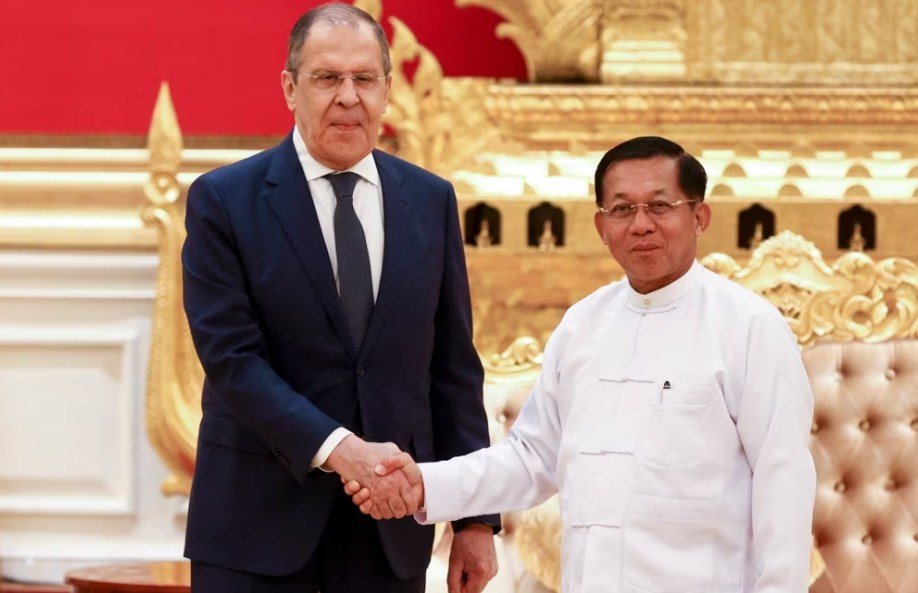The military regime in Myanmar has expressed its interest in acquiring nuclear technology from China, according to a report by Radio Free Asia (RFA). The junta’s ambassador to China and North Korea, Tin Maung Swe, asked China to share its expertise in using nuclear technology in various sectors, such as agriculture, health and energy, at a China-ASEAN nuclear forum held in Guangxi last week.
Junta Seeks Peaceful Use of Nuclear Technology
The junta’s deputy minister for science and technology, Dr. Aung Zeya, also invited Chinese collaboration with Myanmar on research and human resource development related to the peaceful use of nuclear technology. The forum was jointly hosted by the Guangxi Autonomous Region government and the China National Nuclear Corporation. It was attended by ASEAN secretary-general Kao Kim Hourn and representatives from other ASEAN countries.
The junta claimed that its nuclear ambitions are for peaceful purposes only, and that it wants to use nuclear technology to improve the lives of its people. However, the junta’s request for Chinese help has raised concerns among some observers, who fear that the regime may have ulterior motives to develop nuclear weapons or use nuclear energy to power its military operations.
China’s Nuclear Cooperation with ASEAN Countries
China has been actively promoting its nuclear technology and cooperation with ASEAN countries, especially in the fields of high-temperature gas-cooled reactors, micro research reactors, experimental tokamak nuclear fusion devices and commercial reactors. Liu Jing, vice chairman of the China Atomic Energy Authority, told the forum that China has cooperated with Indonesia, Thailand and Malaysia on various nuclear projects, and that it provides training and seminars, scientific visits and exchanges for ASEAN countries under regional cooperation programs.
China has also been involved in Myanmar’s nuclear program in the past. In 2007, China helped Myanmar build a small research reactor near Pyin Oo Lwin, which was reportedly under the supervision of the International Atomic Energy Agency (IAEA). However, the reactor was never operational due to technical problems and international pressure. China also supplied Myanmar with uranium ore and other nuclear materials in exchange for natural resources.
Myanmar’s Nuclear History and Controversy
Myanmar’s pursuit of nuclear technology dates back to the previous military regime led by Than Shwe, who struck a deal with Russia’s state-owned nuclear corporation Rosatom in 2007 to build a nuclear research center in Myanmar. The project was delayed due to sanctions and opposition from the US and other countries. In 2015, the then civilian government led by Aung San Suu Kyi signed a memorandum of understanding with Russia to resume the project. In January this year, the junta opened the country’s first nuclear information center in Yangon with Russian assistance.
However, Myanmar’s nuclear program has been shrouded in secrecy and controversy. In 2010, a former army major named Sai Thein Win defected to Thailand and revealed evidence of Myanmar’s clandestine efforts to develop nuclear weapons with North Korean help. He claimed that he had worked at two secret facilities where he witnessed the production of uranium enrichment equipment and missile parts. His allegations were supported by photos and documents that he smuggled out of the country. The IAEA has repeatedly asked Myanmar to allow inspections of its nuclear facilities, but the junta has refused to cooperate.

